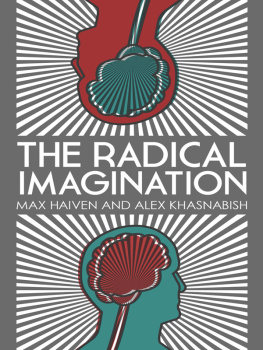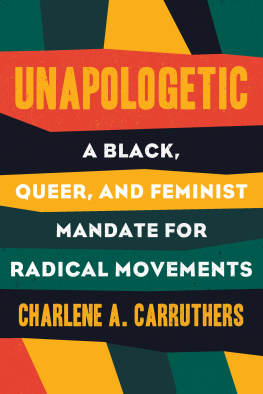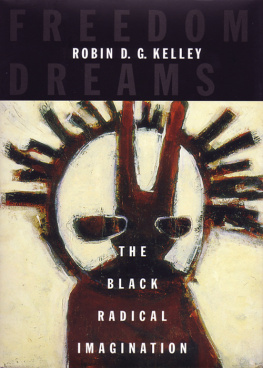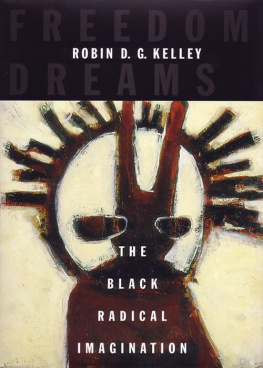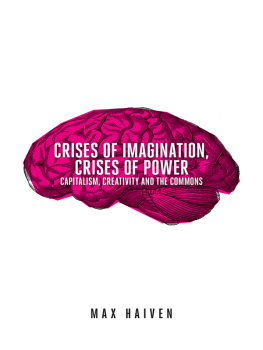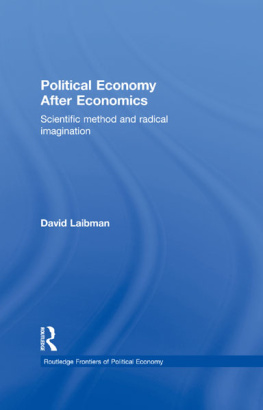
About the authors
MAX HAIVEN is an assistant professor in the Division of Art History and Critical Studies at the Nova Scotia College of Art and Design and co-director of the Radical Imagination Project (radicalimagination.org). He is author of Crises of Imagination, Crises of Power: Capitalism, Creativity and the Commons (Zed Books, 2014) and Cultures of Financialization: Fictitious Capital in Popular Culture and Everyday Life. More information can be found at maxhaiven.com.
ALEX KHASNABISH is an associate professor in the Department of Sociology/Anthropology at Mount Saint Vincent University and co-director of the Radical Imagination Project (radicalimagination.org). He is the author of Zapatistas: Rebellion from the Grassroots to the Global (Zed Books, 2010) and Zapatismo beyond Borders, and co-editor (with Jeffrey Juris) of Insurgent Encounters: Transnational Activism, Ethnography, and the Political. More information can be found at alexkhasnabish.com.
The radical imagination
Social movement research in the age of austerity
MAX HAIVEN AND ALEX KHASNABISH

Zed Books | LONDON
The Radical Imagination: Social Movement Research in the Age of Austerity was first published in 2014 by Zed Books Ltd, 7 Cynthia Street, London N1 9JF, UK
This ebook edition was first published in 2014
www.zedbooks.co.uk
Copyright Max Haiven and Alex Khasnabish 2014
The rights of Max Haiven and Alex Khasnabish to be identified as the authors of this work have been asserted by them in accordance with the Copyright, Designs and Patents Act, 1988
Typeset in Monotype Bembo by illuminati, Grosmont
Index: John Barker
Cover design: www.stevenmarsden.com
All rights reserved. No part of this publication may be reproduced, stored in a retrieval system or transmitted in any form or by any means, electronic, mechanical, photocopying or otherwise, without the prior permission of Zed Books Ltd.
A catalogue record for this book is available from the British Library
Library of Congress Cataloging in Publication Data available
ISBN 978-1-78032-904-8
Acknowledgements
Our greatest thanks go to all those who collaborated on this research in Halifax, Nova Scotia. While they are too numerous to name, we are extremely grateful to all the activists and organizers who gave of their time and energies to make this project a success. Special thanks also go to our research assistants James Babbitt and River Smith, as well as Chris Dixon, Richard Day, Pierre Loiselle, Gary Kinsman, Jamie Yard and Sandra Jeppesen. Thanks also to Ken Barlow, Kika Sroka-Miller, our anonymous reviewers, and everyone at Zed Books, who supported this project and helped bring it to fruition. And, of course, a very special thanks to our families without whom none of this would be possible. We also acknowledge the vital financial support for this project provided by the Social Sciences and Humanities Research Council of Canada and Mount Saint Vincent University.
INTRODUCTION
The importance of the radical imagination in dark times
This is a book about the radical imagination as it plays out in radical social movements today. Part history, part ethnography, part social theory, and part insurgent knowledge production, these pages seek to tease out what makes resistance tick in a world of crisis. The neocolonial War on Terror and the financial meltdown have served as pretext for ushering in a ruthless global austerity agenda backed by increased military presence and police force. In this moment, the need for the radical imagination and for robust and militant social movements is more pressing than ever. It is no exaggeration to say that the situation is dire. We are amidst what Patrick Reinsborough () has called a slow motion apocalypse where global capitalism has unleashed a gradually unfolding collection of cascading crises: ecological collapse; energy, food and water shortages; humanitarian nightmares in war zones, neocolonial exploitation zones and disaster capitalist sacrifice zones; and the less tangible but no less terrifying growth of massive social alienation and dislocation, along with its cruel medicines militarism, addictions, fundamentalisms, racism, xenophobia and social violence. If ever there was a need for the radical imagination and social movements to materialize it, it is now.
In these times, no research is neutral. We join many others in insisting that social movement research is not merely the work of distanced data collection and interpretation, but an intimate and vital part of social transformation. But, unlike many, we take seriously the question of the researchers responsibility not merely to observe and report on the radical imagination but to awaken, enliven and convoke it. This book, then, sees research not as a foreign presence within social movements, but as an important part of the way social movements reproduce themselves. We argue that the processes of research are already under way in social movements, and that researchers can arrive not simply as outside observers, but as critical, reflexive agents who work in solidarity with movements to build their capacity for resilient and transformative struggle.
In this sense, this is a book for those involved in social movements, a book for those who admire social movements, a book for those who seek to understand social movements, and a book for all those fascinated by the radical imagination. Our aim is to show that the radical imagination remains a driving force in the dynamics of our political moment, that it is not an individual possession but a collective process, and that social movements depend on it to navigate our rapidly changing times.
What is the radical imagination?
The radical imagination is a term employed by many and explored by few. It evokes in us the notion of the capacity to think critically, reflexively and innovatively about the social world, and yet it eludes definition. It is, ultimately, an ). While all too often the idea of the radical imagination is scoffed at as an ephemeral, intangible and woolly feel-good slogan that distracts us from the real work of social justice, we argue here that it is real and important and that we ignore and belittle it at our peril.
On the surface level, the radical imagination is the ability to imagine the world, life and social institutions not as they are but as they might otherwise be. It is the courage and the intelligence to recognize that the world can and should be changed. But the radical imagination is not just about dreaming of different futures. Its about bringing those possible futures back to work on the present, to inspire action and new forms of solidarity today. Likewise, the radical imagination is about drawing on the past, telling different stories about how the world came to be the way it is, and remembering the power and importance of past struggles and the way their spirits live on in the present (see we are left only with the residual dreams of the powerful, and for the vast majority they are not experienced as dreams but as nightmares of insecurity, precarity, violence and hopelessness. Without the radical imagination, we are lost.
We approach the radical imagination not as a thing that individuals possess in greater or lesser quantities but as a collective process, something that groups do and do together (see also ). For this reason, the imagination is an intimate part of how we empathize with others, the way we gain some sense of the forces that impact our lives, and the way we project ourselves into the future and gain inspiration and direction from the past. Yet, contrary to many applications of the idea, we understand the imagination as not merely the private property of the individual. Through shared experiences, language, stories, ideas, art and theory we share part of our imagination. We create, with those around us, multiple, overlapping, contradictory and coexistent imaginary landscapes, horizons of common possibility and shared understanding. These shared landscapes are shaped by and also shape the imaginations and the actions of their participant individuals.
Next page
